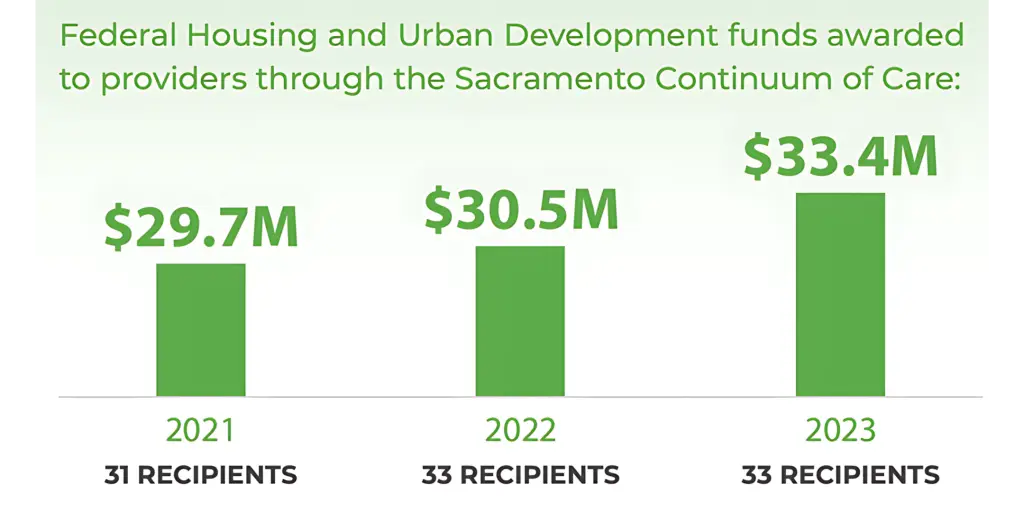Securing funding for the Sacramento region to effectively prevent and resolve homelessness is a core service of Sacramento Steps Forward (SSF). In addition to leading strategies, planning, and services, SSF manages the application for and monitoring of grants that steward millions of dollars to our community’s Continuum of Care (CoC) homelessness response system.
A key source of our regional funding is from the U.S. Department of Housing and Urban Development (HUD) through their CoC Program Competition. In the last three years alone, our region’s collaborative application has been awarded nearly $94M from this program—funds which have rehoused, permanently housed, and provided essential services to our neighbors experiencing homelessness.
The CoC Program Competition begins with HUD’s release of a national Notice of Funding Opportunity (NOFO). Prepped by year-round planning, the NOFO prompts an announcement of the opportunity to our community of providers, and SSF’s coordination of the regional application.
We start by training local service providers on the competition details and alignment of proposals with HUD’s priorities. A review committee, including nonprofit leaders, government officials, and partners with lived experience of homelessness, helps assess and prioritize projects based on community needs. We guide providers through the application process, ensuring submissions are accurate and competitive, and then finalize and submit the regional package, ensuring it meets HUD’s requirements. This work ensures a strong, unified application reflecting community needs and federal goals for resolving homelessness in our country. Successful proposals require effective process facilitation and strategic positioning of projects to support HUD priorities.
In serving as the lead Continuum of Care agency for Sacramento, SSF implements a range of programs and practices that ensures a robust framework for resolving homelessness that also secures needed funding from federal, state, local, and private sources. These efforts include:
- Development of a regional plan that parallels the federal “All In” strategic plan to prevent and end homelessness based on a “housing first” approach;
- Engagement of “Partners with Lived Expertise” via a formal committee and in advisory positions;
- Facilitation of a Racial Equity committee and development of a Racial Equity plan;
- Development of Community Standards for providers and services engaged in responding to and supporting those experiencing homelessness; and
- Providing continuous analysis and data for insight into the effectiveness and efficiency of our homelessness prevention and response efforts.
As we sponsor this year’s regional CoC program competition, we are deeply grateful to the people, partner agencies, and service providers who engage in this framework and collaborate with us to bring essential funding to our region.
With sincere appreciation,
Rachel Bereza
Deputy CEO

